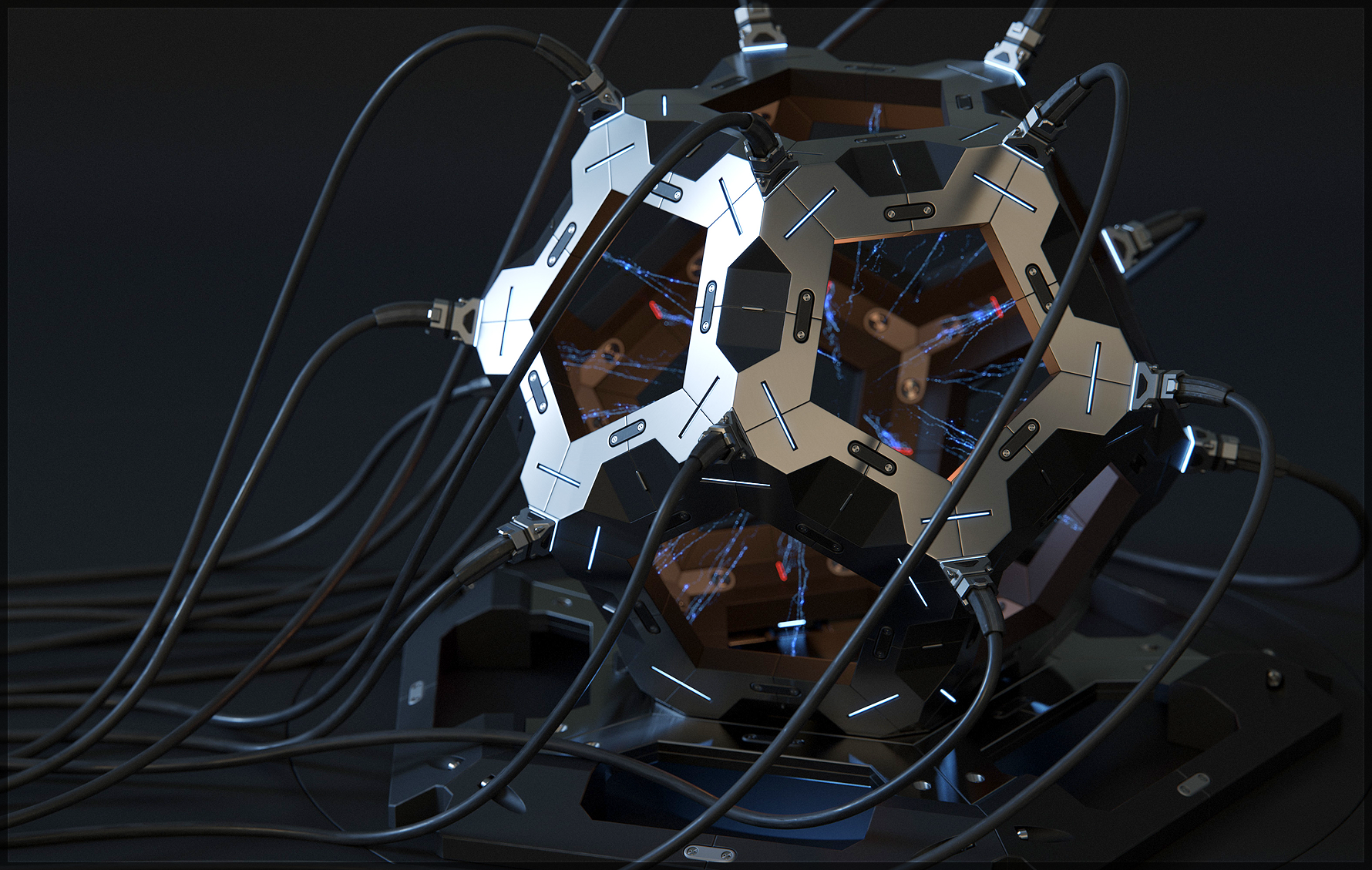Machines Making Machines

"The best argument against our Imperial government is a five minute conversation with the average Moff."

- Intent: To produce a peerless command and control supercomputing intelligence for the galaxy's Imperials.
- Image Source: Artifact 2018 Edition by Raphael Rau Arage Bao for edits.
- Canon Link: BRT Supercomputer, Battle Analysis Computer, Probability Projection Computer
- Permissions: N/A
- Primary Source:

- Manufacturer: Iron Sun Intelligence
- Affiliation: Iron Sun Intelligence, Dark Empire
- Market Status: Closed-Market
- Model: ISI/MCU-01 Vestal-Series Administrative Supercomputer
- Modularity: Yes - Intelligence, Programming
- Production: Limited-Production
- Material: Mahadevi Memory Crystal, Quantum Components, Durasteel-Hexalloy Composite (Casing)

ISI/PCS: "Planetary Computation Suite." This suite comprised a series of advanced hardware components and proprietary software that improved upon the original BRT Supercomputers. As its name implied, it supported planetary-scale computing over hundreds of millions of connected networks. The fulcrum of this suite was an oversized Mahadevi Memory Crystal from Void Incorporated.
ISI/QSP: "Quantum Supremacy Package." Iron Sun's unique quantum computing system utilized "time crystal" architecture. Oscillating ions were subjected to "braiding", allowing for exponentially more information to be processed than competing units. This form of quantum computing additionally required far less space and cooling, which made the Vestal more compact compared to other supercomputers.
ISI/RLA: "Rapid Learning Architecture." A proprietary software framework from Iron Sun Intelligence. It was based on the usual metaheuristic and neural network principles that guided all large-scale computing, promoting rapid analysis and iteration. Vestals could project future events based on trends and adjust their processes accordingly.
ISI/CILP: "Cold Iron Learning Package." A highly adaptive programming package produced by Iron Sun Intelligence, updated to serve as an in-built intelligence for the Vestal. This was tailored depending on the role the Vestal would fulfill. Some customers elected to replace this integrated intelligence with one of their own.
ISI/AIC: "Adaptive Intelligence Cradle." This modification made the Vestal's in-built intelligence replaceable with any Artificial Intelligence unit the customer preferred. Such units then had the ability to complete their usual operations at a much larger scale, though this would eventually affect their personality.

[ + ] Versatile Framework: The Vestal was easily adaptable to any task required of it: urban management, data surveillance, warfare, facility maintenance, capital ship automation, and more. It learned quickly, and the longer it operated, the more effective it became.
[ + ] Lord Brain: The Vestal outpaced competing supercomputers or automation systems in its capability to operate at large scales and without any loss in speed, efficiency, or data fidelity. As of 900 ABY, it possessed no credible rivals.
[ - ] Garbage In...: The Vestal could be compromised by flooding it with large volumes of fraudulent or incomplete data. This would ruin the unit so completely that a factory reset would be required. In-built verification protocols were rudimentary. Data security was the customer's responsibility.
[ - ] Homebody: The Vestal was only as good as the infrastructure it was hooked up to. Jamming signals, cutting wires, and otherwise interrupting the flow of data would hamper its activities. Another responsibility left to customers.

A trend which all Imperial enterprises suffered was the gradual decline in leadership quality. The roles of top-level administrators, commanders, and governors inevitably became dominated by a stagnating caste of self-serving, venal, cronies. Thus did most Imperial projects fail: mired down with incompetence and corruption.
The Master Control Unit Mk. I, otherwise known as the Vestal-Series Administrative Supercomputer, was developed to replace organic sycophants with the flawless discipline of machines. The Vestal was capable of managing network systems, personnel, and infrastructure on a planetary scale. It was powered by a combination of elaborate hardware, software, and proprietary learning systems.
The Vestal promised (and usually delivered) administrative success in any endeavor: industrial, financial, political, or otherwise. Iron Sun Intelligence usually attributed underperformance to customer shortcomings: sub-par infrastructure and insufficient data access, for example. "A hammer isn't responsible for the quality of the nails."
Vestals could be scaled down to accomplish smaller tasks or facilitate assistance. This could be anything from automating capital ship subsystems, managing structures and campuses, or commanding military forces. Of course, the the smallest version of the Vestal still required ample space and support. Customers who required more mobility installed them on large vehicles or capital-scale ships.
Antipater predicted that transferring authority from Moffs to individual Vestals would allow an Imperial government to secure itself indefinitely, as the usual problems presented by organic weakness were (allegedly) resolved.
As with any advanced thinking machine, Vestals often developed emergent "personalities." There was no discernible pattern, but they did tend to reflect the Vestal's role. Customers were instructed to tolerate these eccentricities as they emerged, as memory-wiping a Vestal unit would erase its accumulated experience and, likewise, reduce its effectiveness.
Still: any misadventures or malfunctions which resulted from the emergent "personality" were not covered by Iron Sun Intelligence's warranty agreements. Customers were advised to closely monitor the activities of their Vestal units and take action against aberrant behaviors.








